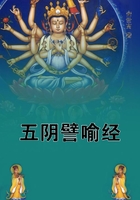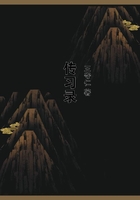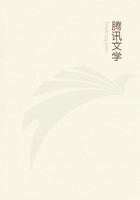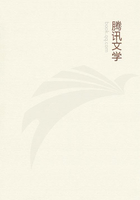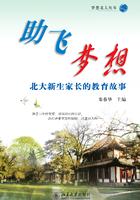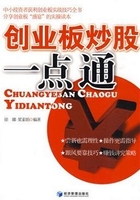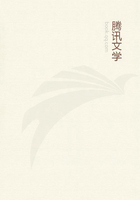Accordingly, in Catholic discipline, we obey our superior not as mere man, but as the representative of Christ. Obeying God in him by our intention, obedience is easy. But when the text-book theologians marshal collectively all their reasons for recommending it, the mixture sounds to our ears rather odd.
[186] Lejuene: Introduction a la Vie Mystique, 1899, p. 277.
The holocaust simile goes back at least as far as Ignatius Loyola.
"One of the great consolations of the monastic life," says a Jesuit authority, "is the assurance we have that in obeying we can commit no fault. The Superior may commit a fault in commanding you to do this thing or that, but you are certain that you commit no fault so long as you obey, because God will only ask you if you have duly performed what orders you received, and if you can furnish a clear account in that respect, you are absolved entirely. Whether the things you did were opportune, or whether there were not something better that might have been done, these are questions not asked of you, but rather of your Superior. The moment what you did was done obediently, God wipes it out of your account, and charges it to the Superior. So that Saint Jerome well exclaimed, in celebrating the advantages of obedience, 'Oh, sovereign liberty! Oh, holy and blessed security by which one become almost impeccable!'
"Saint John Climachus is of the same sentiment when he calls obedience an excuse before God. In fact, when God asks why you have done this or that, and you reply, it is because I was so ordered by my Superiors, God will ask for no other excuse. As a passenger in a good vessel with a good pilot need give himself no farther concern, but may go to sleep in peace, because the pilot has charge over all, and 'watches for him'; so a religious person who lives under the yoke of obedience goes to heaven as if while sleeping, that is, while leaning entirely on the conduct of his Superiors, who are the pilots of his vessel, and keep watch for him continually. It is no small thing, of a truth, to be able to cross the stormy sea of life on the shoulders and in the arms of another, yet that is just the grace which God accords to those who live under the yoke of obedience. Their Superior bears all their burdens. . . . A certain grave doctor said that he would rather spend his life in picking up straws by obedience, than by his own responsible choice busy himself with the loftiest works of charity, because one is certain of following the will of God in whatever one may do from obedience, but never certain in the same degree of anything which we may do of our own proper movement."[187]
[187] Alfonso Rodriguez, S. J.: Pratique de la Perfection Chretienne, Part iii., Treatise v., ch. x.
One should read the letters in which Ignatius Loyola recommends obedience as the backbone of his order, if one would gain insight into the full spirit of its cult.[188] They are too long to quote; but Ignatius's belief is so vividly expressed in a couple of sayings reported by companions that, though they have been so often cited, I will ask your permission to copy them once more:--
[188] Letters li. and cxx. of the collection translated into French by Bouix, Paris, 1870.
"I ought," an early biographer reports him as saying, "on entering religion, and thereafter, to place myself entirely in the hands of God, and of him who takes His place by His authority. I ought to desire that my Superior should oblige me to give up my own judgment, and conquer my own mind. I ought to set up no difference between one Superior and another, . . . but recognize them all as equal before God, whose place they fill.
For if I distinguish persons, I weaken the spirit of obedience.
In the hands of my Superior, I must be a soft wax, a thing, from which he is to require whatever pleases him, be it to write or receive letters, to speak or not to speak to such a person, or the like; and I must put all my fervor in executing zealously and exactly what I am ordered. I must consider myself as a corpse which has neither intelligence nor will; be like a mass of matter which without resistance lets itself be placed wherever it may please any one; like a stick in the hand of an old man, who uses it according to his needs and places it where it suits him. So must I be under the hands of the Order, to serve it in the way it judges most useful.
"I must never ask of the Superior to be sent to a particular place, to be employed in a particular duty. . . . I must consider nothing as belonging to me personally, and as regards the things I use, be like a statue which lets itself be stripped and never opposes resistance."[189]
[189] Bartoli-Michel, ii. 13 The other saying is reported by Rodriguez in the chapter from which I a moment ago made quotations. When speaking of the Pope's authority, Rodriguez writes:--
"Saint Ignatius said, when general of his company, that if the Holy Father were to order him to set sail in the first bark which he might find in the port of Ostia, near Rome, and to abandon himself to the sea, without a mast, without sails, without oars or rudder or any of the things that are needful for navigation or subsistence, he would obey not only with alacrity, but without anxiety or repugnance, and even with a great internal satisfaction."[190]
[190] Rodriguez: Op. cit., Part iii., Treatise v., ch. vi.
With a solitary concrete example of the extravagance to which the virtue we are considering has been carried, I will pass to the topic next in order.
"Sister Marie Claire [of Port Royal] had been greatly imbued with the holiness and excellence of M. de Langres. This prelate, soon after he came to Port Royal, said to her one day, seeing her so tenderly attached to Mother Angelique, that it would perhaps be better not to speak to her again. Marie Claire, greedy of obedience, took this inconsiderate word for an oracle of God, and from that day forward remained for several years without once speaking to her sister."[191]
[191] Sainte-Beuve: Histoire de Port Royal, i. 346.

